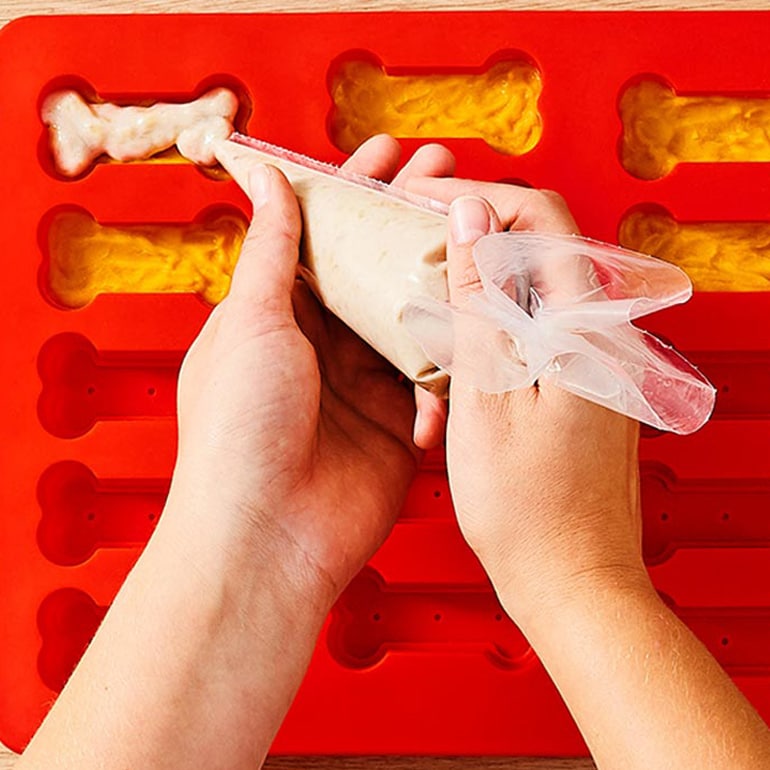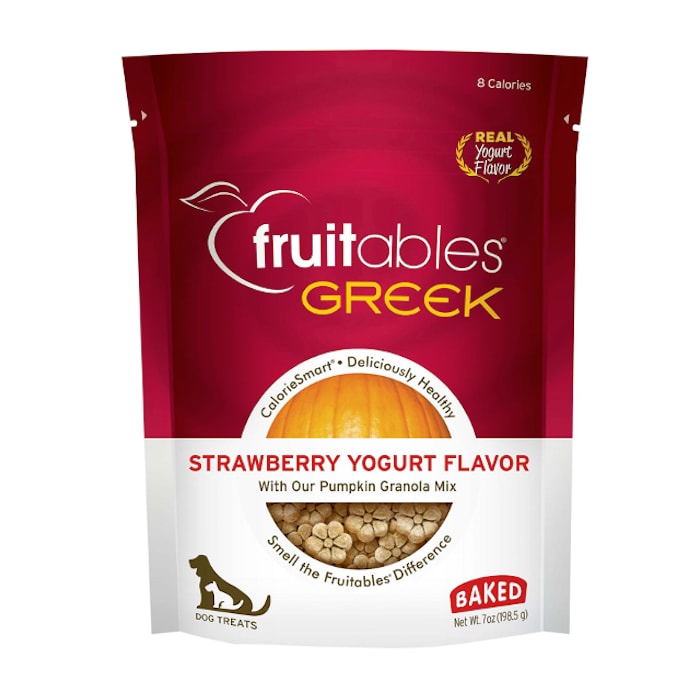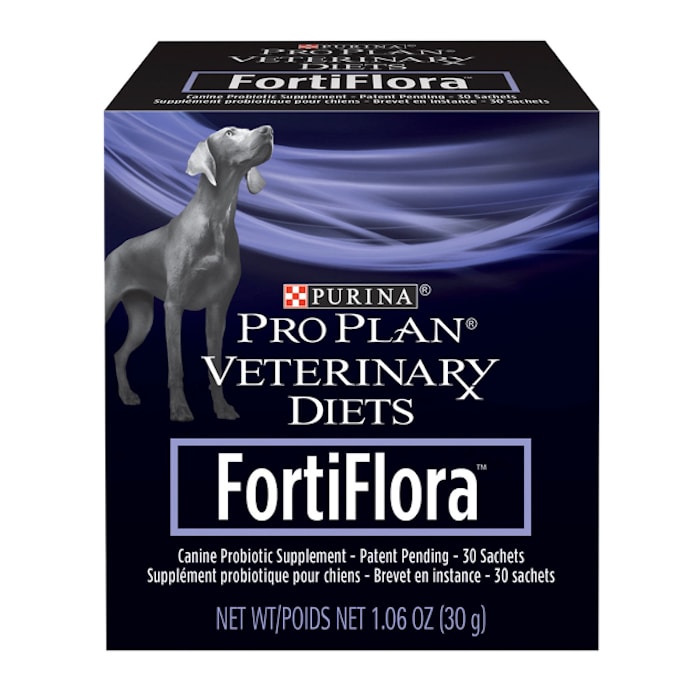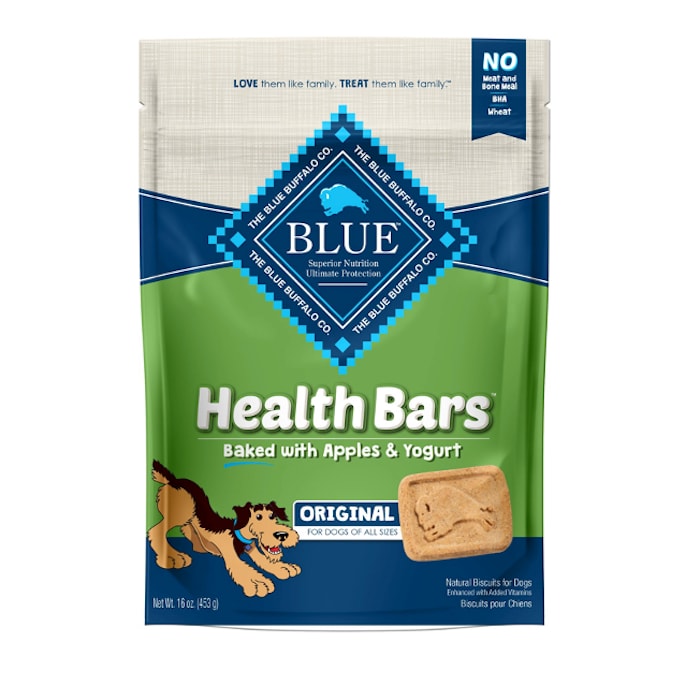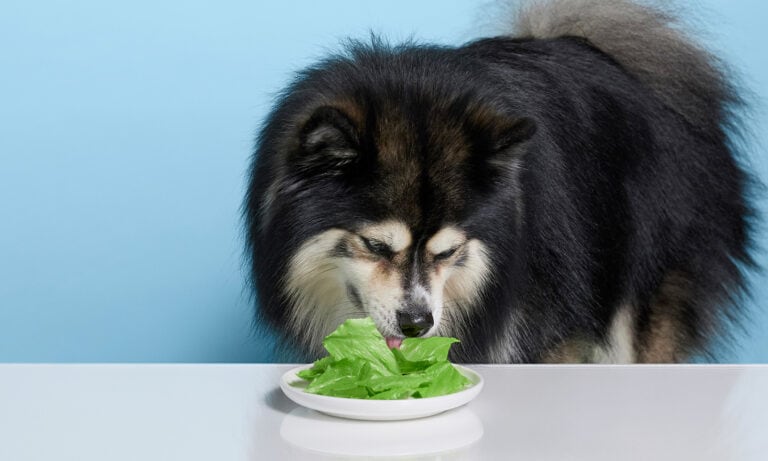Can dogs eat yogurt? Yes, dogs who are not prone to issues with digesting lactose can lap up this cool, sweet creamy treat in moderation. Plain, unflavored, non- or low-fat yogurt can even be good for their health according to Sean Delaney, DVM. Before you dish up a spoonful of this dog treat, here’s what you need to know.
Benefits of Yogurt for Dogs
- Yogurt has a variety of health benefits including plenty of protein that supports muscles, bones and tissues, and a variety of vitamins and minerals including potassium.
- It's rich in calcium a bone-building mineral; just a few spoons of yogurt might be enough to provide their required daily quantity depending on size and general health.
- Contains probiotics and live and active bacterial cultures which may contribute to a healthy gut microbiome. These bacteria strains, like Lactobacillus, Bifidobacterium, and Streptococcus Thermophilus, can help regulate the digestive system.
Risks of Feeding Yogurt to Dogs
Delaney recommends that pet parents choose plain, unflavored, non-or low-fat yogurt. Both Greek and regular yogurt are fine for healthy dogs, he says, but warns that pet owners should choose a yogurt brand carefully, as some types contain ingredients that can be harmful to pets. Avoid feeding these kinds of yogurt to your dog:
- Yogurt with any artificial sweeteners, especially Xylitol
- Yogurt with flavoring components some of which can be dangerous to dogs
- Yogurt containing “fruit on the bottom” which is heavy in added sugars
- Yogurt (in fact anything) with chocolate or chocolate flavor
- Full-fat yogurt which has excess calories
Some dogs have a harder time digesting dairy that others, so one thing to consider when giving your dog yogurt is whether they have an issue with lactose. Common symptoms of a dog having a reaction to dairy include:
- Diarrhea
- Vomiting
- Flatulence/abdominal gas
- Lack of appetite
- Weight loss
- Poor weight gain
- Abdominal pain and discomfort
- Itching/excessive scratching
- Poor body condition
If you suspect your dog lactose issue, you should refrain from giving any yogurt of any kind and in any amount until you consult with your vet.
How to Feed Yogurt to Your Dog
- As with any human food, pet parents looking to incorporate yogurt in their dog’s diet should consult with their veterinarian beforehand.
- For general GI health, it is best to give yogurt every day, although concentrated probiotic supplements are likely going to provide a more measurable result.
- Check the label—plain nonfat yogurt is approximately 15 calories per ounce. This means a ten-pound dog can have up to two ounces per day, if no other treats are also being fed; smaller dogs should be treated to about one spoonful; and medium dogs may consume two spoons of yogurt.
- Note however that if you are following the 10% treats rule (no more than 10% of your dog’s daily calories should come from treats), this amount of yogurt won’t be enough to get many probiotic benefits from its active cultures. Ask your vet for a probiotic supplement.
- There are many ways in which you can supplement your dog’s diet with yogurt, including adding it to their daily meals or making it an extra-special treat:
- Mix non-fat plain or Greek yogurt with pieces of chopped fruits such as berries or even pieces of shredded meat and drop into ice cube trays and freeze. Your pup will go crazy for a “pupcicle.”
- Mixing recommended amounts into their regular daily food
- Use as a substitute for fats in homemade dog treats such as this pet-safe birthday cake.
Frequently Asked Questions
Q:Can dogs eat strawberry yogurt?
A:Yes and no. Many flavored yogurts you’ll find in grocery stores have added sugars that are not good for dogs, or artificial sweeteners, like xylitol, which can be toxic. If you want to feed your dog strawberry yogurt, try plain yogurt without any added sweeteners and top it with some fresh, chopped strawberries.
Q:Can dogs eat Greek yogurt?
A:Yes, dogs can eat plain, Greek-style yogurt. Be careful not to feed them flavored Greek yogurt as these often have added sweeteners, both natural and artificial, that can make your dog very sick. Greek yogurt also has lower levels of lactose than regular yogurt, which is better for pups with lactose sensitivities.
Q:Can dogs eat lactose free yogurt?
A:Yes, plain yogurt marked “lactose free” is safe for your dog and may be a better choice for lactose intolerant pups. However, always check the ingredients to make sure there are no added sweeteners or other things that could be bad for your dog. Some plant-based yogurts (which are different than yogurts marked as lactose free) can be harmful depending on the plant they’re derived from.
Q:Can dogs eat Greek yogurt ice cream?
A:Not on the menu. Many store-bought Greek yogurt ice creams are flavored with added sugars and contain mix-ins like chocolate chips, none of which are good for your dog. Instead, you can DIY a yummy treat at home by freezing plain Greek yogurt or blending the yogurt with frozen fruit.
Q:What kind of yogurt can I give to my dog?
A:It’s best to give your dog plain yogurt without any added sweeteners or preservatives. Always check the ingredients list before feeding your dog yogurt. Yogurt with live cultures, such as Greek yogurt, also contains healthy probiotics.
Top Dog Foods & Treats With Yogurt
Before serving any new foods, even healthy ones such as plain yogurt to your dog, consult with your veterinarian for appropriate serving size. If you suspect your pet is sick, please call your vet immediately. For health-related questions, always consult your regular veterinarian when possible as they can make the best recommendations for your pet. (If you need help finding a vet near you use this link.)
Share:

